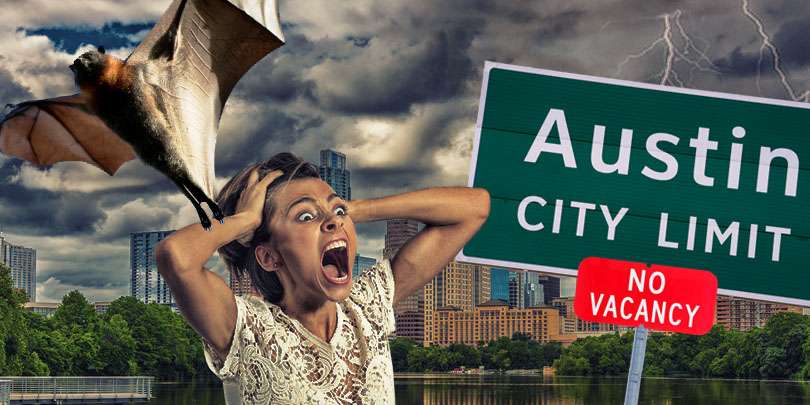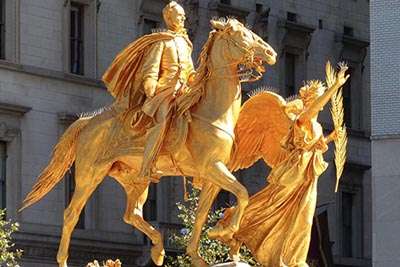It’s Saturday, February 21, 2026 in Austin, Texas
Groupon Photography Fraud Provides Cautionary Tale
A recent photography deal offered by Groupon in Atlanta provides users of the service with a cautionary tale on some of the potential pitfalls in buying from the popular site -- with lessons to be learned for both customers and merchants:
A local "photographer" in Atlanta offered:
$65 for a One-Hour Photo Shoot, a DVD of the Images, an 8”x10” Print, and 20% Off Additional Prints at Dana Dawes Photography (Up to $500 Value)
She managed to sell 1,175 packages to Groupon users before discussions of photo fraud ultimately forced Groupon to refund everyone's money and withdraw the deal.
Some users who were also professional photographers grew suspicious that some of her portfolio of photos had been "stolen" from other photographers. One user was able to trace one of her photos back to the source photographer.
Whether the photos in question were stolen outright or somehow licensed via use of stock photography is not clear. Royalty-free stock photography is commonly used on websites and in advertisements, but for a professional photographer to claim that these photos were part of their own portfolio of work on their website would definitely be fraud / false advertising -- and likely not allowed under the photo license.
That appears to be the reason that Groupon pulled the deal and refunded money to purchasers,
But additional valid questions were raised by users that highlight some troubling aspects of Groupon and its immense popularity. Having sold 1,175 such packages before pulling the deal -- many users familiar with professional photography work questioned whether an individual photographer could fulfill the deal to 1,175 individuals within the 1 year expiration date. They felt a professional photographer could not meet the schedule or endure the costs associated with fulfilling the deal based on the anticipated revenue that the deal would ultimately bring in to the merchant.
Groupon reportedly responded that limits on number of deals sold and the ability to fulfill those deals within the coupon expiration period is left up to the merchant to decide. This policy poses a potential pitfall for customers as well as merchants.
My advice to customers is that they should closely examine any expiration dates and also the ongoing number of deals sold to evaluate whether it makes sense to buy into a deal or not. Can the merchant perform the number of deals sold? Are reservations and appointments required?
Merchants should be aware that offering Groupon deals can generate thousands of potential customers who will need to be served. Can they handle the volume? Are they going to turn a profit on the deal or at least break even?
While it is an opportunity for merchants to get thousands of new customers, it is also an opportunity to alienate those same customers if their needs are not properly provided for.
My personal advice to merchants would be to make sure you at least break even on the deal you provide, as Groupon has such a large following it is likely you will sell thousands of such deals -- and you don't want to be taking a loss on each one. You want to be happy with having all the new customers, and making sure you break even will hopefully ensure that.

AUSTIN
the most beautiful
My Top Ten Most Beautiful Pictures of Austin
I have spent years looking at pictures of Austin - and these are my favorites - the most outrageous beauties! I have added some comments about colors and life in Austin.

TECH ADVICE
stop them once and for all
How to End Annoying Robocalls - OMG a Solution!
Get rid of Robocalls. There is a free solution that really works - it's called Nomorobo and we love it.

WEB DESIGN
big breakthrough in color research
Want to Use the Viking Color Palette in Your Website?
Scientists have discovered the favorite Viking colors and now you can use them in your website!

WEB DESIGN
be prepared - choose wisely
Checklist for Law Firms Looking for a Web Designer
Here are some helpful hints and direction on the skills and knowledge your web designer should have.

WEB DESIGN
essentials for success
New Home Builder Website Checklist
Here's a list of the essentials you'll need to create your new home builder website. It's a list of all of the building blocks you'll need to make your site a success.

WEB DESIGN
max speed
7 Tips to Speed Up Your Website
Optimizing the speed that your website's content loads - will inevitably increase customer satisfaction, keep them on your website, reducing its bounce rate, and hopefully make them return visitors.

AUSTIN
save as many as you can!
Top 10 Reasons NOT to Move To Austin
With Austin making headlines and ending up on virtually every "Top 10 Best City for..." lists -- we now have about 150 people moving here daily!! We figured we should warn potential new residents of the hidden dangers of moving to Austin.

ANCESTRY RESEARCH
Howdy Grandmother!
Pocahontas ancestry and DNA - Sullivan Family Connection
How I discovered my ancestor Pocahontas and her Sullivan family descendants of Northern Virginia using the web - a genealogy posting by Bob Atchison.

Anonymous Love Letters - $500
Did you know that really was a profession? In 1961 you got paid $500 per letter, that would be $4100 today!

SEO Tips for Home Builders
When we build a new website for our home builder clients, we always try to focus on implementing "best practices search engine optimization (SEO)" to maximize their placement in organic search engine results.

GEDmatch Used to Snare Golden Gate Killer - Hackers Get MyHeritage Data
As you have probably read it has been extensively reported that Golden Gate Killer was found using data from GEDmatch. It's an amazing story.

Keller Williams Real Estate Agent Website Created
Pallasart launches new real estate website for Matthew Church, an Austin Keller Williams Associate. The site has many cool features that will help Matthew offer his services and attract new customers.

Hummingbird Farms Upgrades Images on their Website
Hummingbird Farms, the famous maker of body lotions seen on QVC , upgrades website with huge new product images, which increases sales

Top Texas Home Builder Redesigns Website
Olson Defendorf, the top award-winning Texas custom home builder, creates a new brand image and redesigns website. Click here to see what they just did in 2018.

The Best Antique Roses for Your Austin Garden
Here's a list of the best antique and old roses for your Austin garden plus a few recommended David Austin Roses

Maine Resort Redesigns Website
The Moorings in New Harbor did a total redesign of its website and added an availability and booking system.

My Favorite Semi-Precious Stones for Hardstone Animals
Here are some images showing my favorite semi-precious stone animals with jeweled eyes from my collection and stories of the stones and where they come from.

Why do my website fonts and photos look blurry in Windows 10?
When users install or upgrade to Windows 10, "display scaling" may be turned on "by default" to either 125% or 150% resulting in blurriness when viewing websites or applications on certain monitors.

5 Common Website Mistakes to Avoid Making
We've been in the web design business since 1996, and have seen many small businesses make these easily avoidable but often costly mistakes with their websites.

Should You Use Live Chat in Your Website?
Here's an informal overview of live chat options, outlining how Olark, one of the leading providers, works and its features. We explain how live chat can increase online sales and generate leads no matter the size of your company.

Where to Find and Buy Old, Antique and David Austin Roses Online
Bob Atchison's guide to find rare, antique and cabbagey roses to order online. Here you'll find the best sources with roses I especially love and recommend for your garden.

How to Add MLS Listings to Your Real Estate Website
If you are a realtor or real estate broker, you need a website to advertise your business and attract new clients. Get clients to stay on your website by providing access to Multiple Listing Service (MLS) real estate listings.

New Real Estate Web-Tools Just Released
Now it's possible to have a website that surpasses the very best in real estate. You can get an incredible design with powerful databases that can do anything and everything you could dream of...

Overcoming Your UNNATURAL FEAR of Cursive Fonts
The unspoken fear all web designers dread - you've been asked to use cursive fonts! There is no escape... yes, it has happened to me, Bob Atchison, many times and I have the battle scars to prove it. Here are some cursive fonts I actually like.

Should You Use WordPress for Your Website?
We get asked this question all the time... Should I use WordPress? Here are some of the top considerations to examine when deciding if WordPress is the right choice for building your website.

Drone Photography for Home Builder Websites
As homes in Austin, Texas are getting more expensive and selling for well over $1 million, many home builders and real estate agents are turning to aerial drone photography and videos to showcase their listings.

Is Scotty Bowers Telling the Truth About Hepburn and Tracy?
Is Scotty Bowers, the famous Hollywood pimp telling the truth about Spencer Tracy and Katharine Hepburn being gay? Here's a confirming story...


 New Home Builder Website Checklist
New Home Builder Website Checklist 












